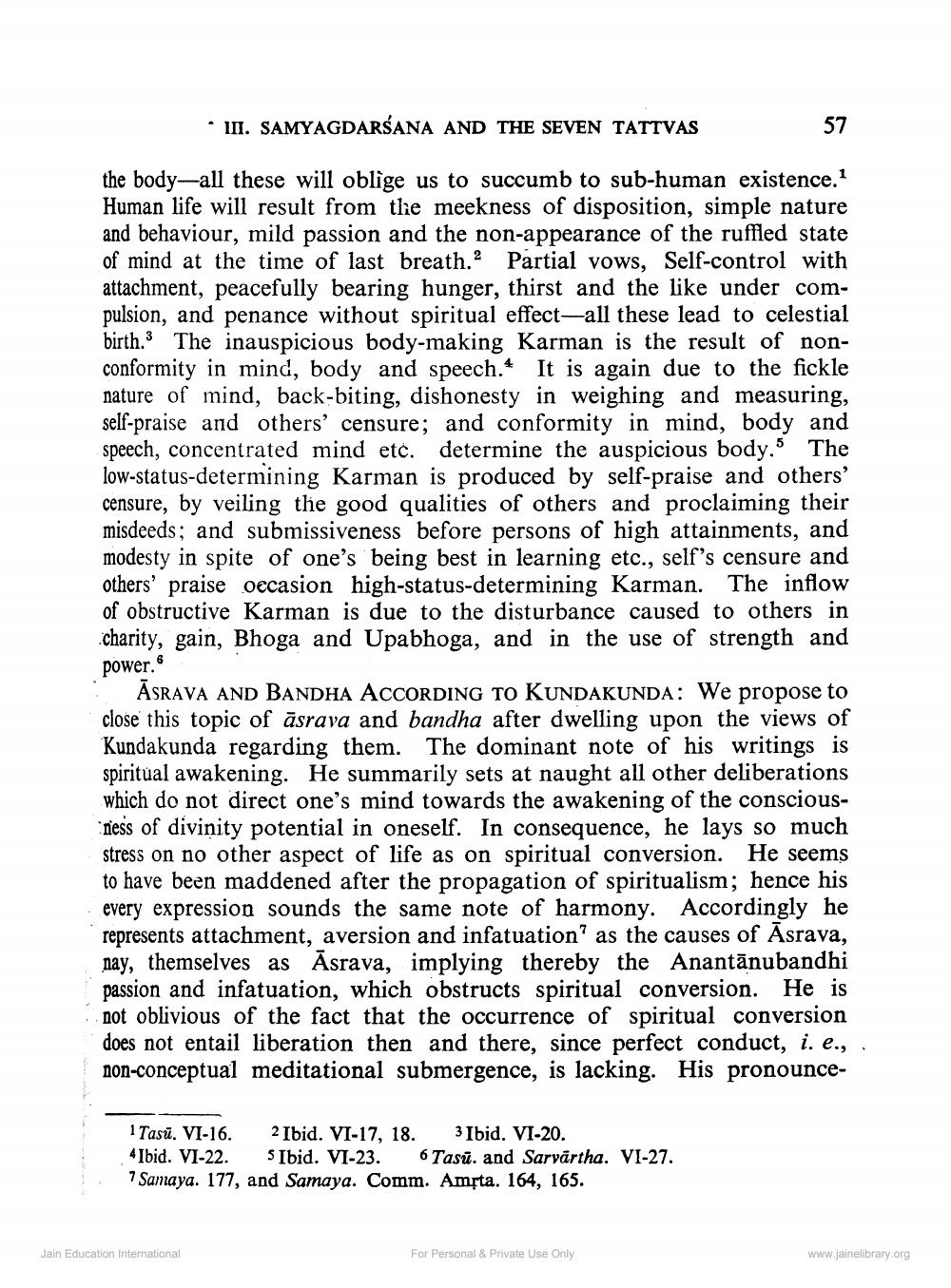________________
.IN. SAMYAGDARŠANA AND THE SEVEN TATTVAS
57
the body-all these will oblige us to succumb to sub-human existence. Human life will result from the meekness of disposition, simple nature and behaviour, mild passion and the non-appearance of the ruffled state of mind at the time of last breath. Partial vows, Self-control with attachment, peacefully bearing hunger, thirst and the like under compulsion, and penance without spiritual effect-all these lead to celestial birth. The inauspicious body-making Karman is the result of nonconformity in mind, body and speech. It is again due to the fickle nature of mind, back-biting, dishonesty in weighing and measuring, self-praise and others' censure; and conformity in mind, body and speech, concentrated mind etc. determine the auspicious body. The
v-status-determining Karman is produced by self-praise and others' censure, by veiling the good qualities of others and proclaiming their misdeeds; and submissiveness before persons of high attainments, and modesty in spite of one's being best in learning etc., self's censure and others' praise occasion high-status-determining Karman. The inflow of obstructive Karman is due to the disturbance caused to others in charity, gain, Bhoga and Upabhoga, and in the use of strength and power.
ASRAVA AND BANDHA ACCORDING TO KUNDAKUNDA: We propose to close this topic of āsrava and bandha after dwelling upon the views of Kundakunda regarding them. The dominant note of his writings is spiritual awakening. He summarily sets at naught all other deliberations which do not direct one's mind towards the awakening of the consciousness of divinity potential in oneself. In consequence, he lays so much stress on no other aspect of life as on spiritual conversion. He seems to have been maddened after the propagation of spiritualism; hence his every expression sounds the same note of harmony. Accordingly he represents attachment, aversion and infatuation' as the causes of Asrava, nay, themselves as Āsrava, implying thereby the Anantānubandhi passion and infatuation, which obstructs spiritual conversion. He is not oblivious of the fact that the occurrence of spiritual conversion does not entail liberation then and there, since perfect conduct, i. e.,, non-conceptual meditational submergence, is lacking. His pronounce
1 Tasū. VI-16. 2 Ibid. VI-17, 18. 3 Ibid. VI-20.
Ibid. VI-22. 5 Ibid. VI-23. 6 Tasū. and Sarvartha. VI-27. 7 Samaya. 177, and Samaya. Comm. Amfta. 164, 165.
Jain Education International
For Personal & Private Use Only
www.jainelibrary.org




